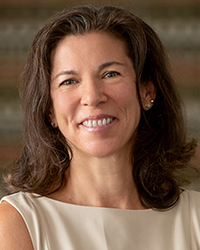Kathryn M. Stanchi

Which of your recent books or articles should I read?
If I had to choose, I would say Feminist Judgments (the SCOTUS volume), which rewrites 25 Supreme Court opinions from a feminist perspective. I believe it can renew your faith in law as a vehicle for social justice. Also, it combines two areas I am passionate about: social justice and legal writing. I’d also recommend my recent article Why Women: Judging Transnational Courts and Tribunals, which takes a critical look at calls for more women in the judiciary. The thesis is that calls for "more women," while understandable, are problematic because they ignore our growing cultural understanding of gender as a non-binary spectrum. Moreover, calling for "women" in high status positions (like judgeships), can often result in replicating racial and class hierarchy.
When you are working on an article or a book, what's your favorite part of the process? What do you do during the process that others might find odd?
To me, writing is a lot like running a long distance. A lot of it is hard and a slog; there’s a reason I have a picture of Hunter Thompson shooting his typewriter on my door. What writer hasn’t wanted to assault their computer? But like running I do it for those moments of grace that come when I really hit my stride. When I’m writing and I get in the zone and feel like I finally got on paper what I wanted to say in the way I wanted to say it; that’s one of the best feelings in the world.
As for odd, I talk to myself, out loud, when I’m writing, and the talk is pretty colorful. Imagine Gordon Ramsay as a law professor. I will ask myself what I am trying to say, or read a sentence aloud and say "what does that even mean" and then try to talk it out. I’m sure this is super annoying, or possibly alarming, to anyone around me.
How does your research and scholarship influence your teaching and service and vice versa?
One of the great benefits of the professor job is the opportunity to write about subjects that excite and motivate you. My scholarship is personally important to me and I bring what I learn from it to virtually every aspect of my life, not just my law school job. At its core, my rhetoric and writing scholarship can be summarized as "be deliberate and thoughtful in what you say and write." This guiding principle helps with everything from communicating with clients to persuading judges and juries to serving on law school committees to talking to customer service representatives in everyday life. It even affects how I talk to my family!
Because most of my feminist scholarship is about making law more inclusive and bringing historically marginalized voices to law, it also provides a foundational principle for my teaching and my everyday life.